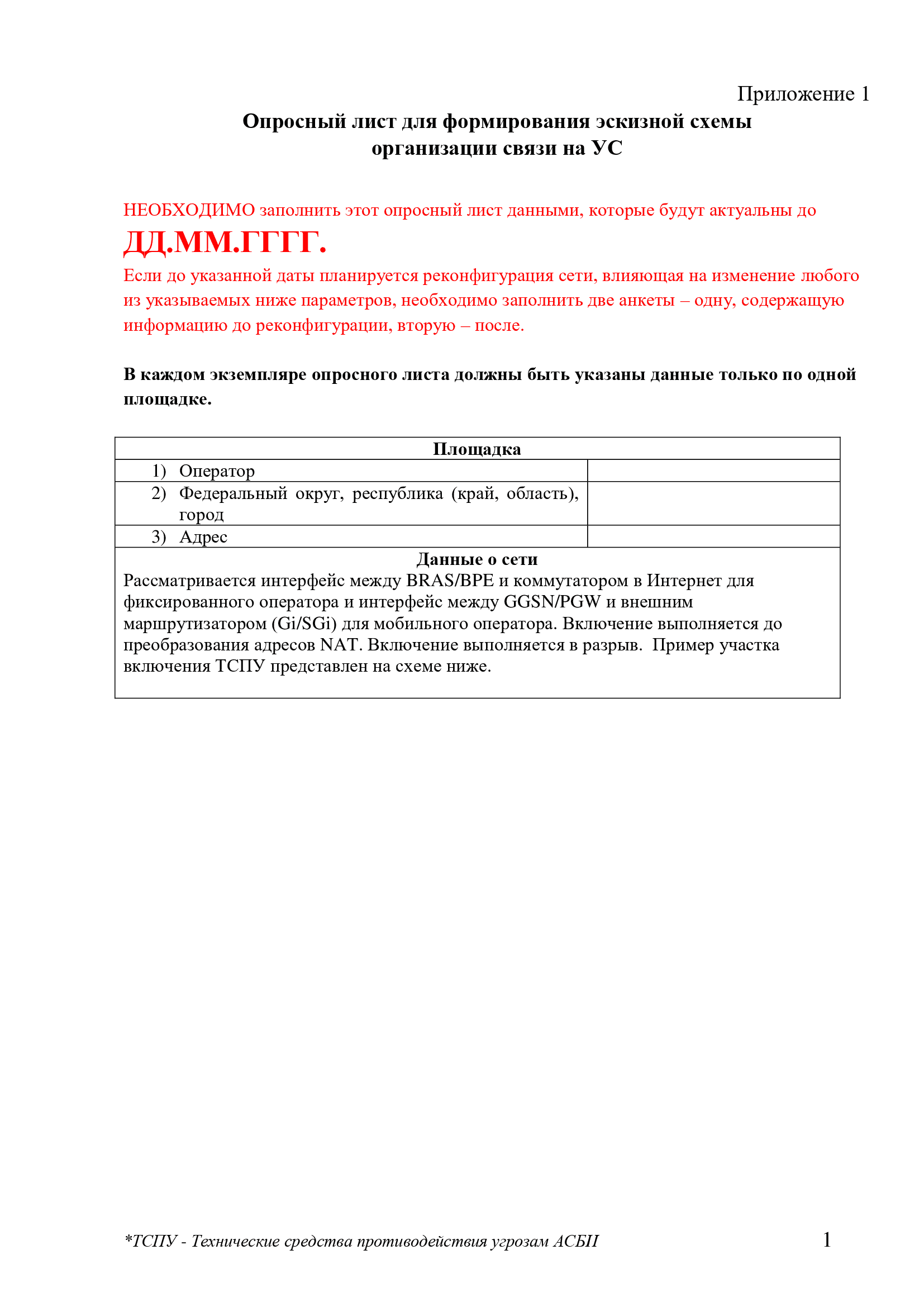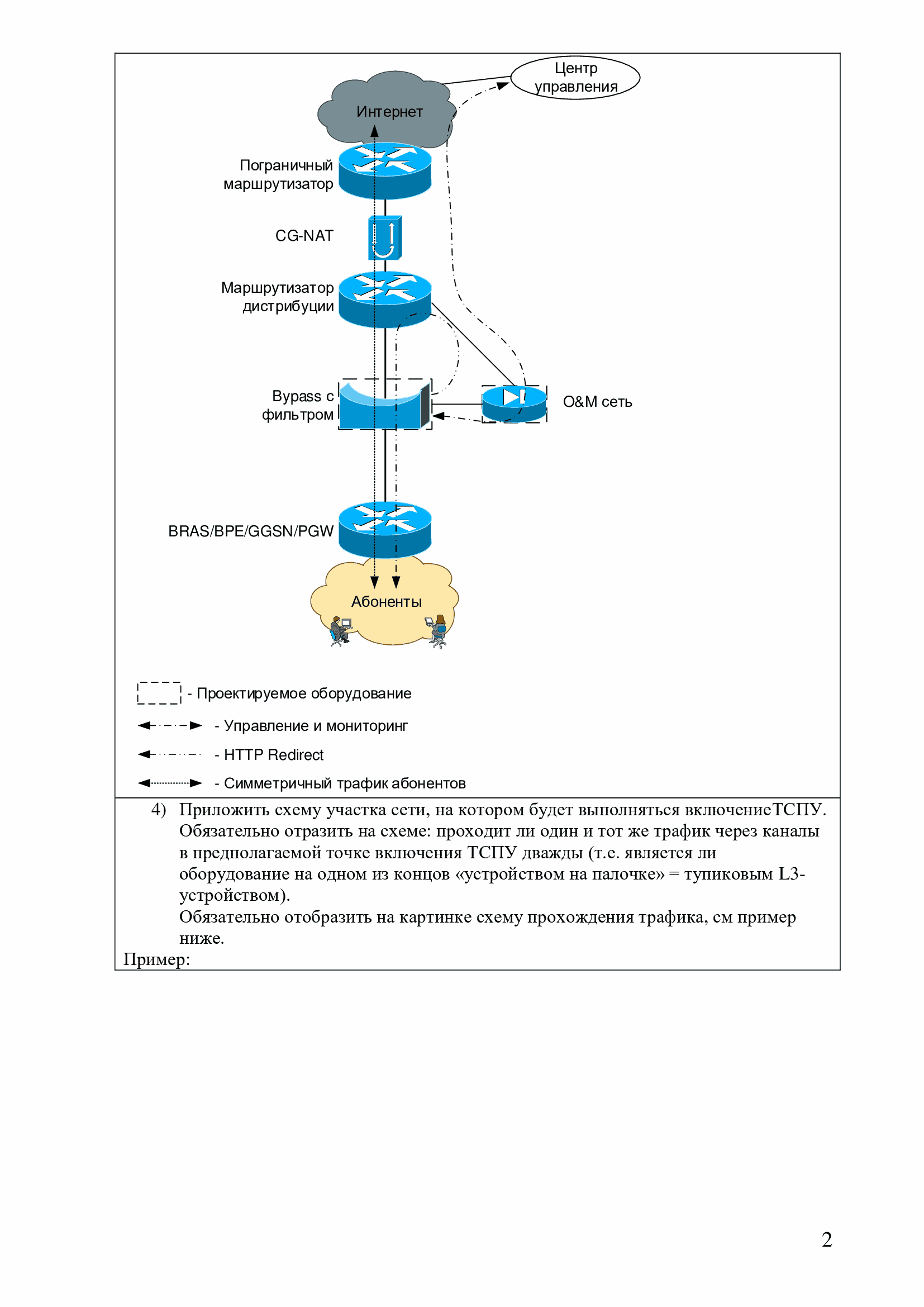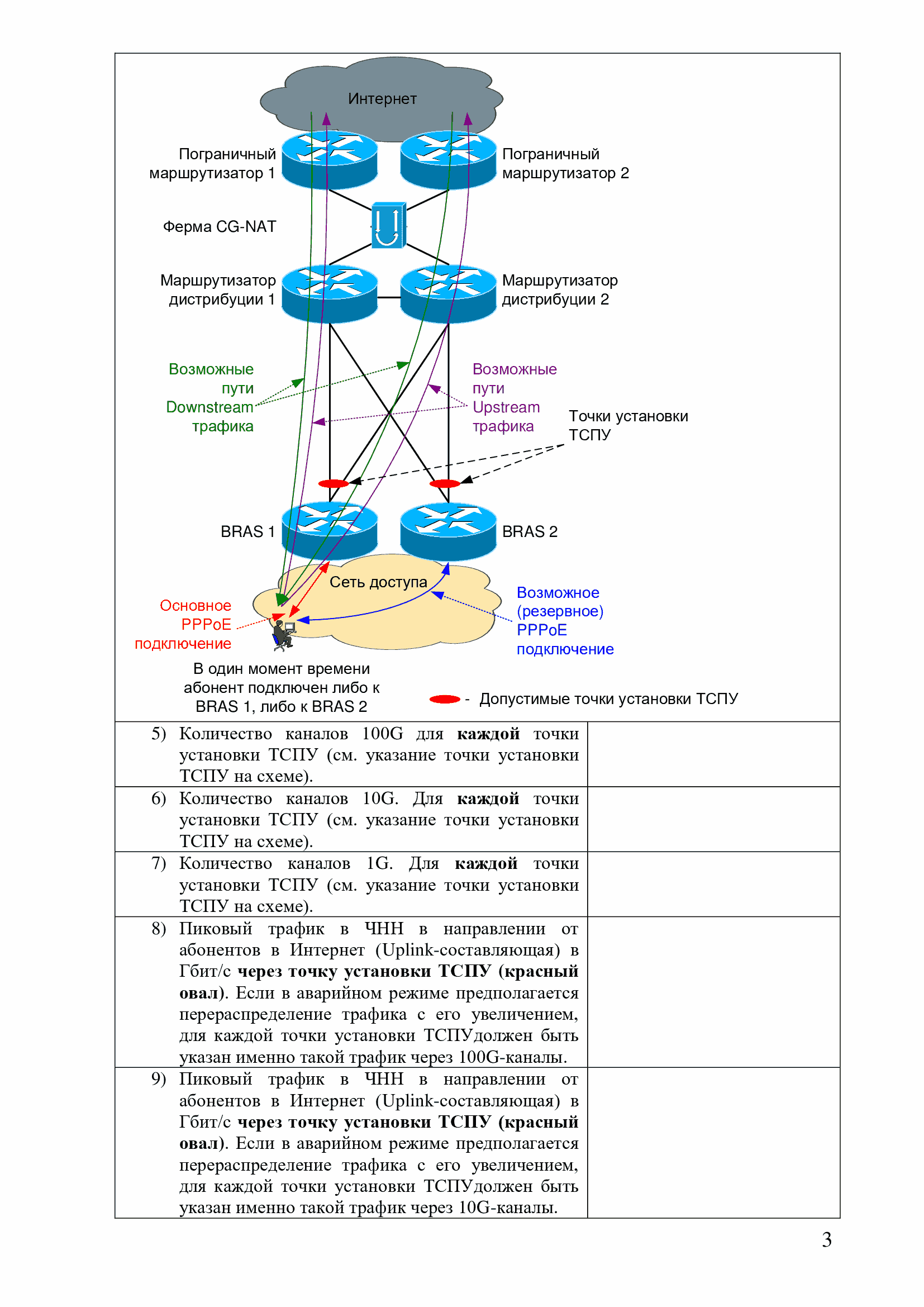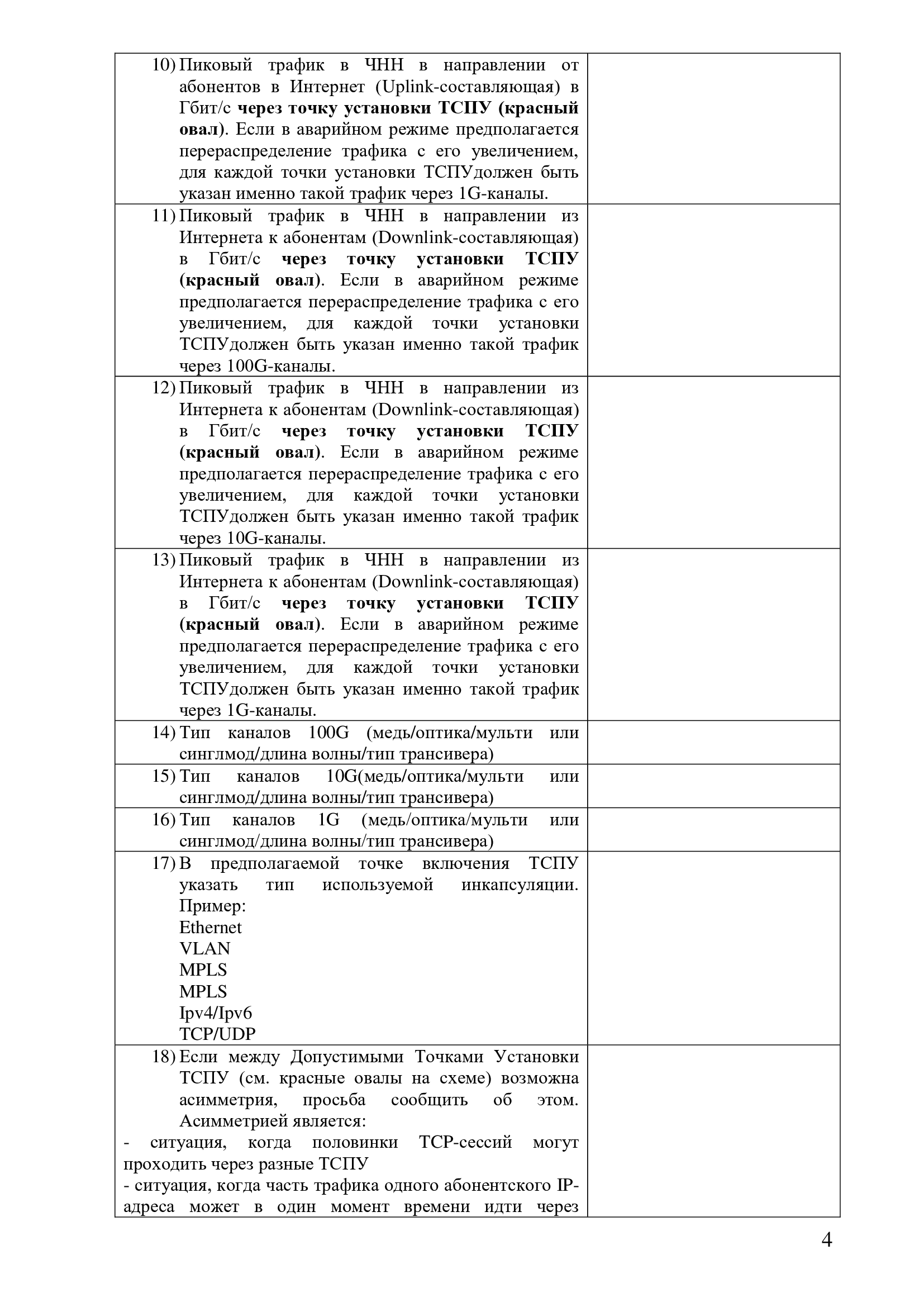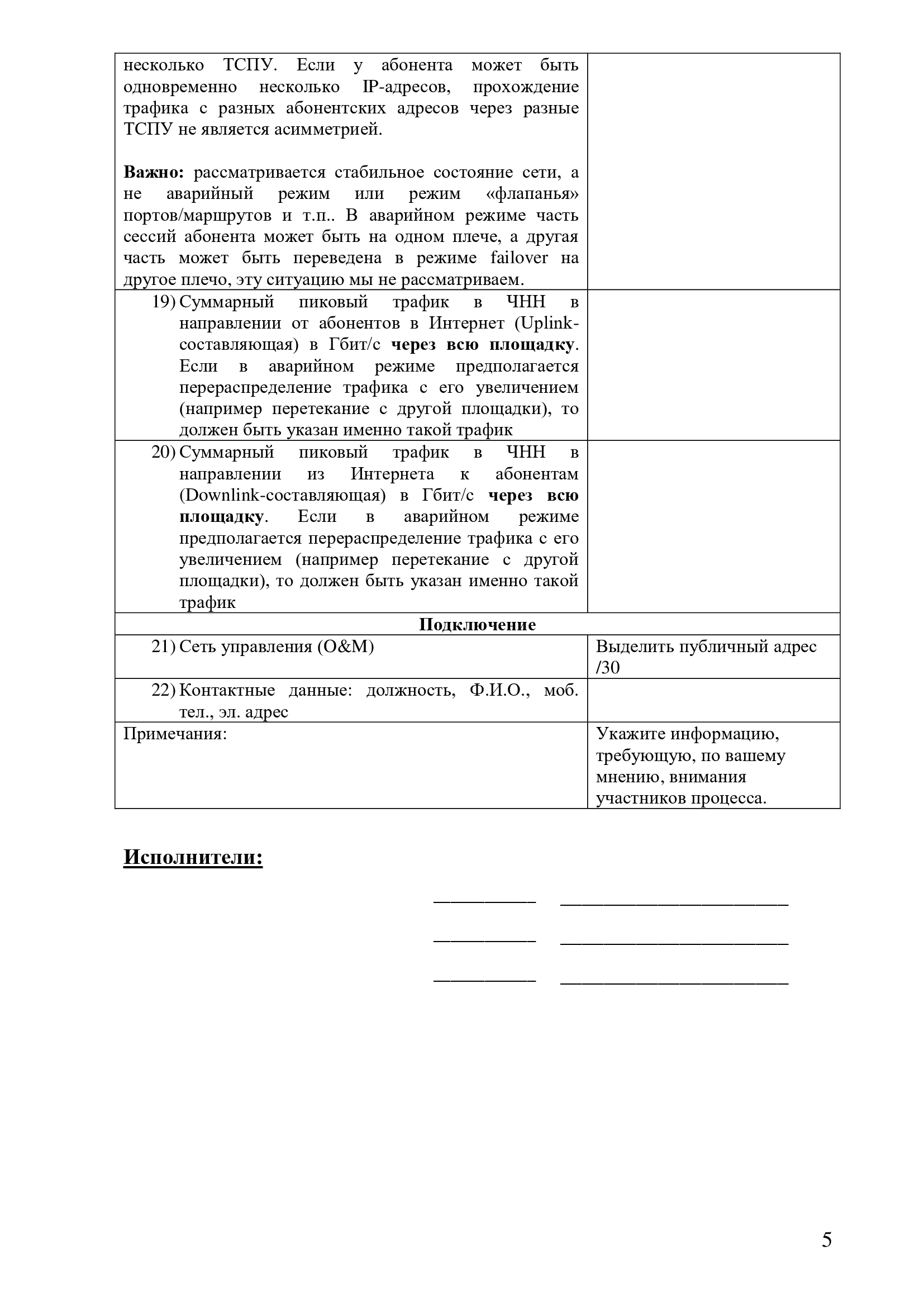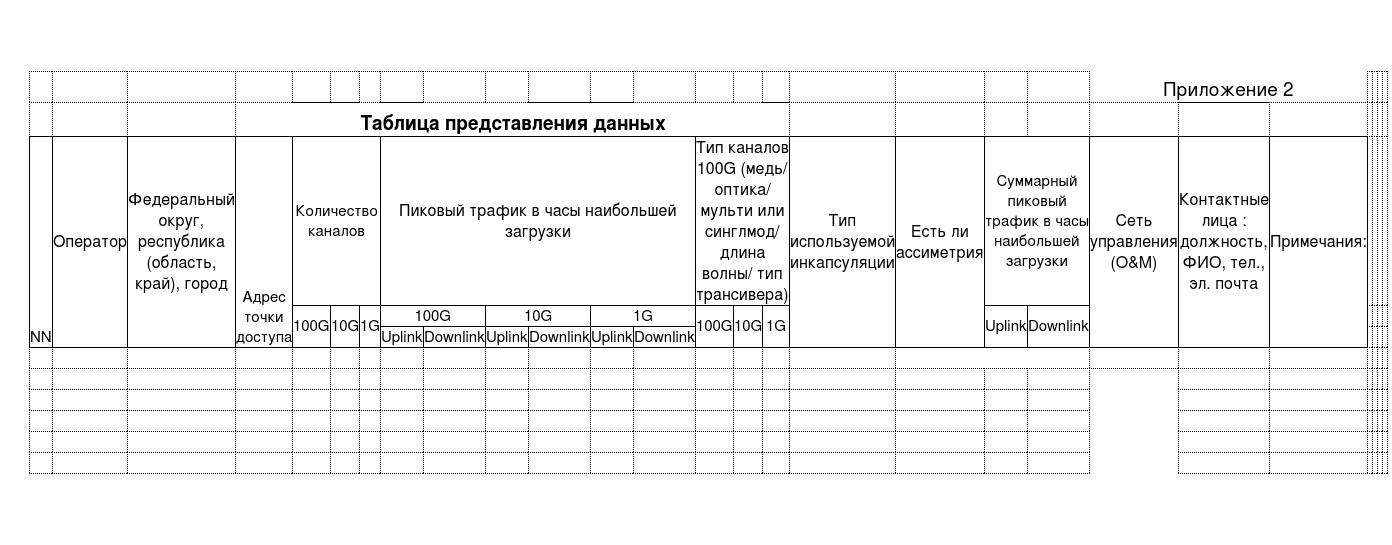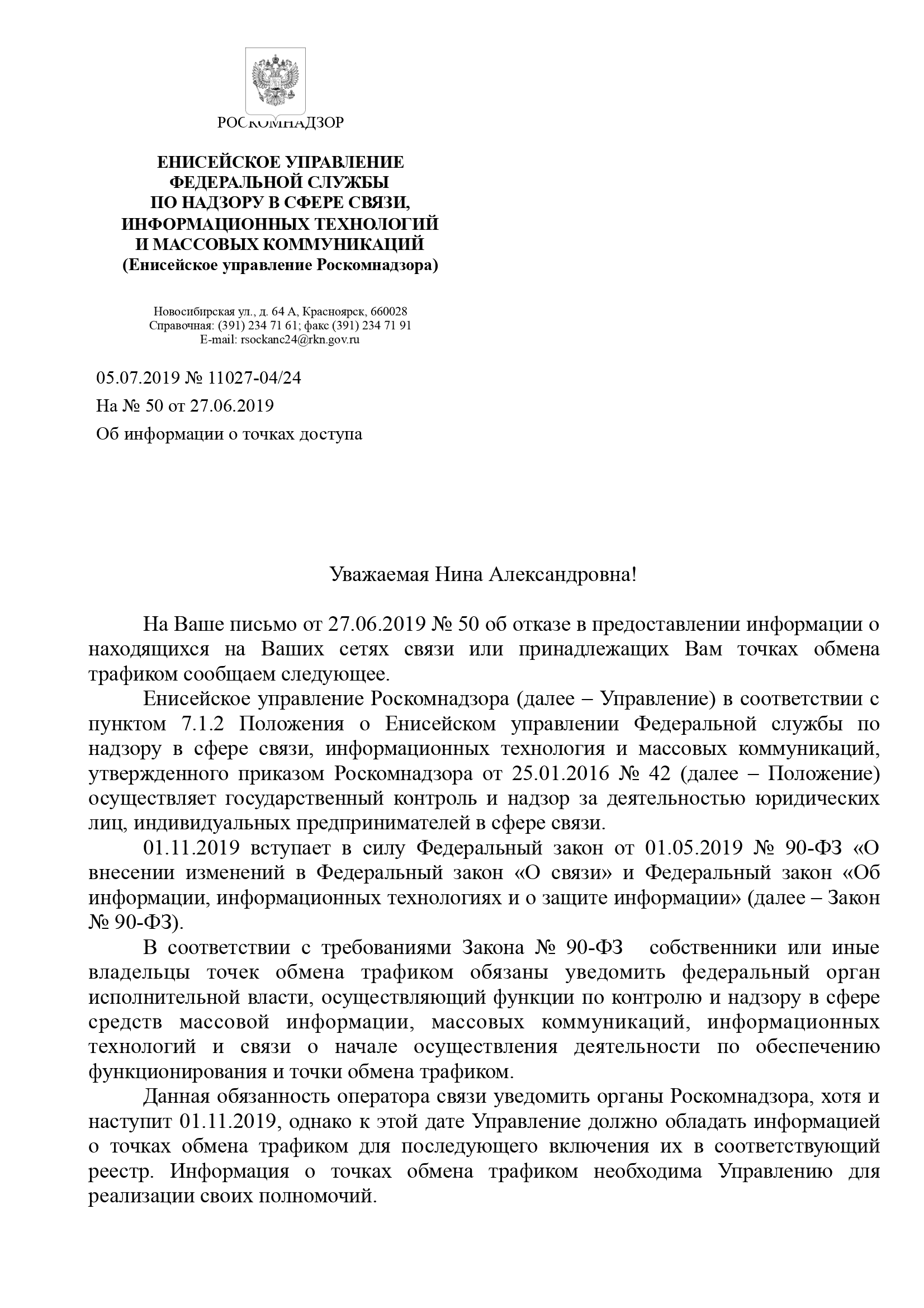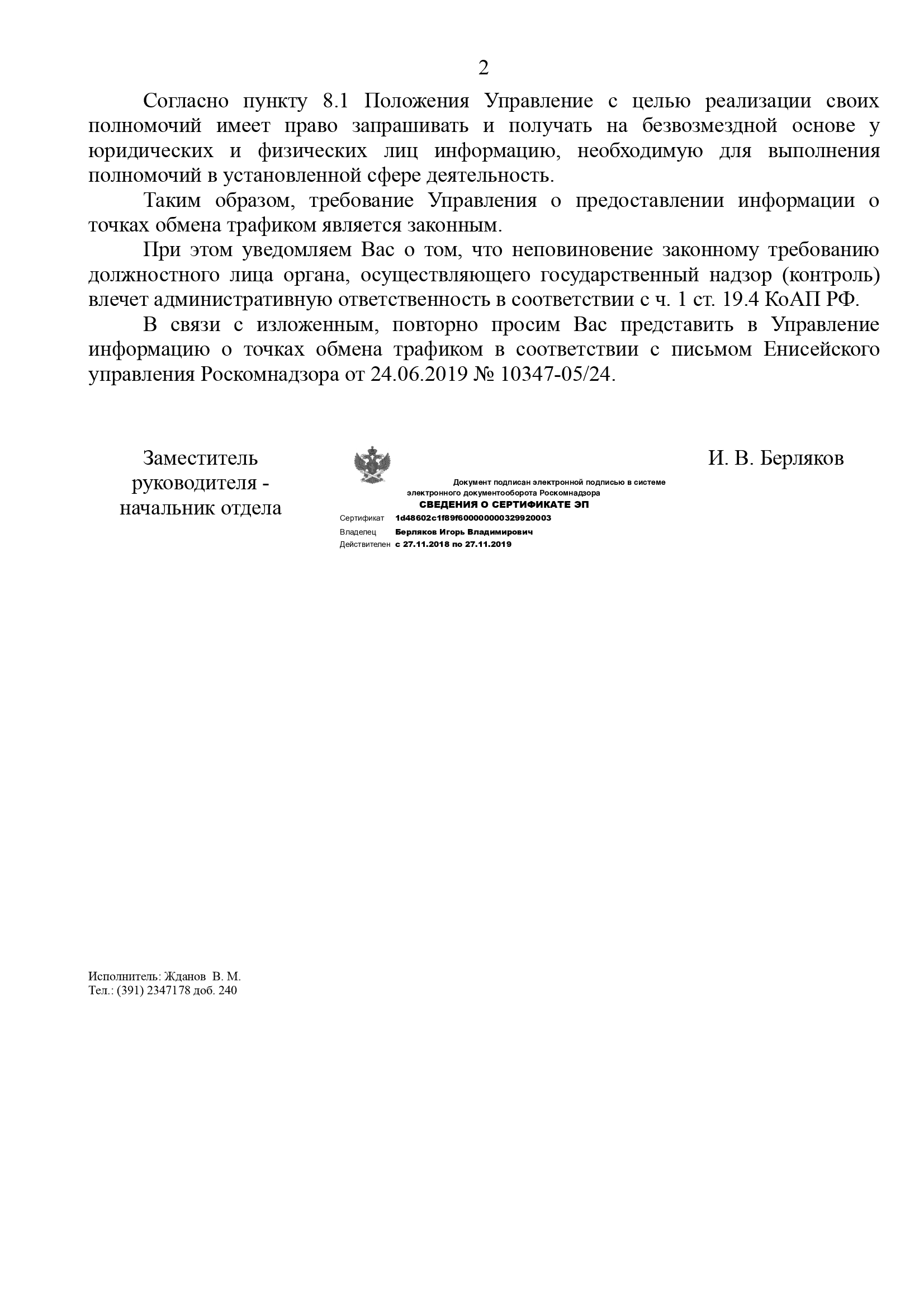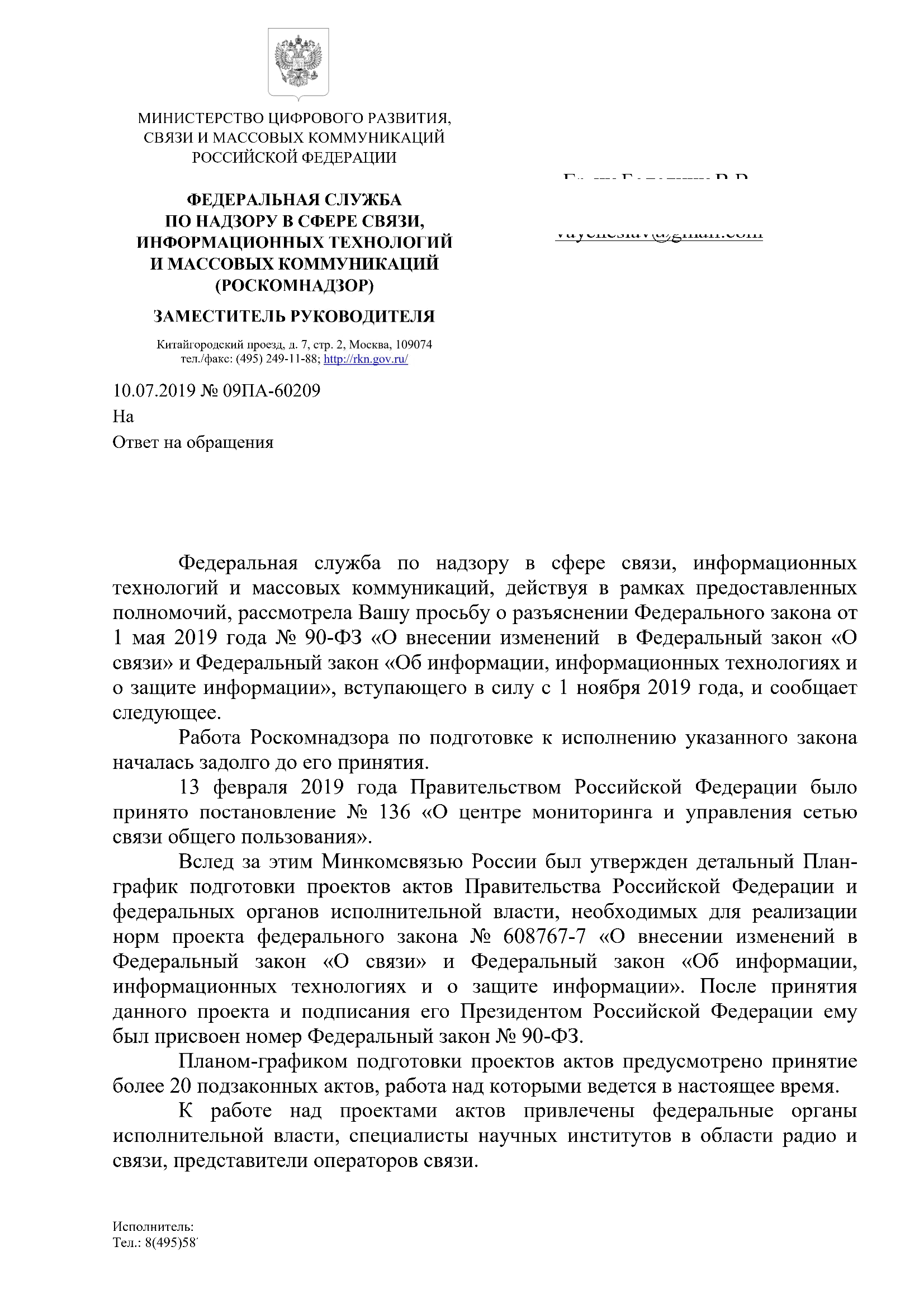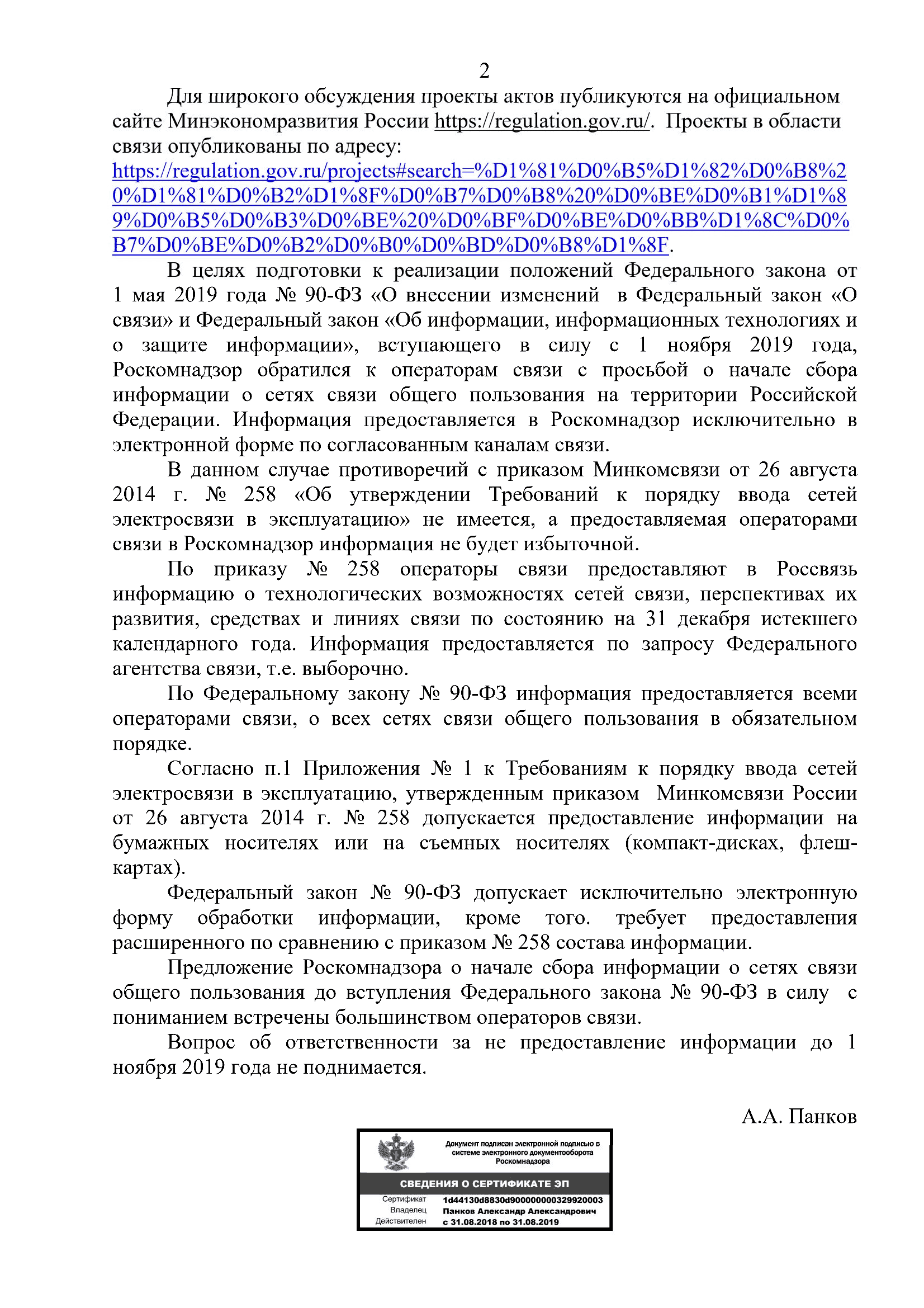If you do not respond, we will write ... to Sportloto
Over the course of two weeks, the territorial departments of Roskomnadzor have sent extremely interesting letters to telecom operators throughout Russia . The supervisor requires information about the points of traffic exchange, as well as the equipment connection scheme, with which the agency is going to manage the Runet.
This information is needed by Roskomnadzor to create the information system of the Center for Monitoring and Management of the Public Telecommunications Network (to implement the provisions of the law dated 01.05.2019 No. 90-ФЗ “on sustainable Runet”).
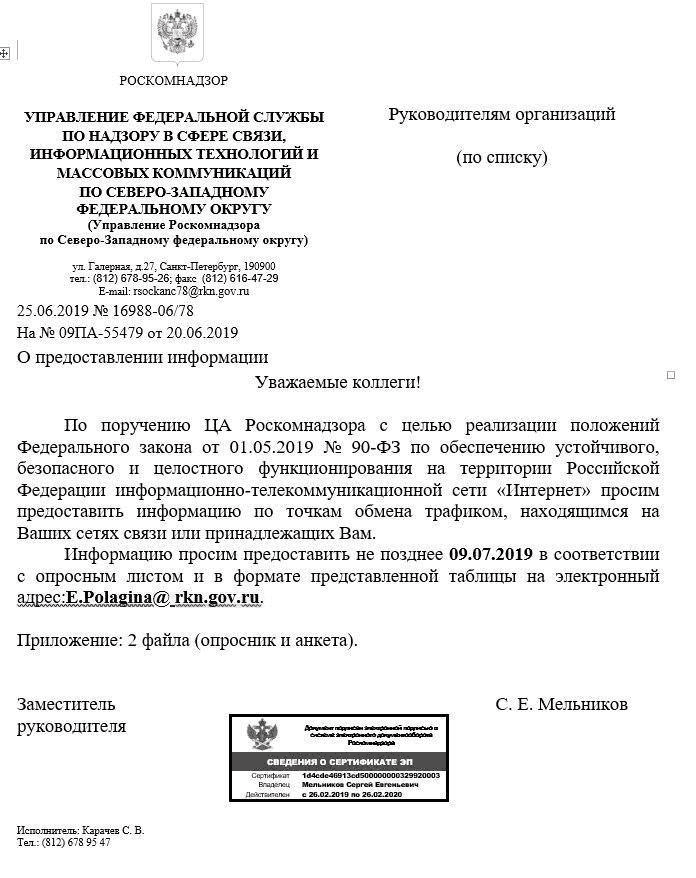
a source
Let us leave the terms “flaping” and “device on a stick” on the conscience of Roskomnadzor specialists. A transcript of some terms can be found here .
The MART provider explains the essence of the ILV requirements in an accessible language :
By the way, Roskomnadzor does not insist on installing just before NAT, but claims that it is “desirable”:
Roskomnadzor refers to the “law on sovereign / sustainable Runet”, which provides for the procedure for providing such information. However, it has not yet entered into force and will only become effective from November 1, 2019 (with the exception of certain subparagraphs that enter into force on January 1, 2021). Standards are not developed, some have slowed down for procedural reasons .
Roskomnadzor and the Ministry of Digital Affairs are forced to run ahead of the engine, because they were in a hopeless situation, having run into what they were fighting for. For standardization, they need information, the order of which is currently not available. And this information can be obtained only after the creation of this very normative.
The territorial departments of Roskomnadzor reacted differently to the requirements of operators to clarify this recursion.
Yes, reader, your vision does not deceive you. The obligation did not come, but the requirement is legal, because ... well, it is very necessary, and if you can’t get into our logic, then we will fine you. I also want that kind of grass.

that’s exactly ( according to ILV ) it is necessary to publish obscene language
But the deputy head of Roskomnadzor does not use substances, therefore, understands that the question of responsibility is not raised.
I don’t know where he found such. According to my observations, for the majority of operators, the first thing that arose was the question: “How would I do so in order not to give out this information?”
They also confirm from the field that the regional branches of the ILV insist on the answer "fraternally" and ask them to send at least something as soon as possible , because the authorities require a report.
Register (or log in through the State Services) on the federal portal of draft regulatory legal acts, familiarize yourself with regulatory acts on the sovereign Runet , express your comments and / or like / dislike. Putting a dislike on a project you don’t like will take almost no time, and the psychological pressure created by this is also important. Check periodically, the texts are corrected, after that you need to repost the old review or write a new one. Phil monitors the fate of the NPA and constantly posts updates on their status .
November is getting closer, and the time for the supervisor is getting less. To be continued ...
Update 1: ILV changed tactics and is trying to refer to clause 6.1 of the Regulation on Roskomnadzor :

It seems to me that Roskomnadzor is openly cunning. There is not a word about the duty of the operator to provide this information . This "established procedure" comes into force only in November.
This information is needed by Roskomnadzor to create the information system of the Center for Monitoring and Management of the Public Telecommunications Network (to implement the provisions of the law dated 01.05.2019 No. 90-ФЗ “on sustainable Runet”).

a source
Applications
Let us leave the terms “flaping” and “device on a stick” on the conscience of Roskomnadzor specialists. A transcript of some terms can be found here .
The MART provider explains the essence of the ILV requirements in an accessible language :
Circled in red are the so-called TSPU (Technical Means for Countering Threats), the very “Black Boxes” from ILV. They are supposed to be put in places marked in red, i.e. output BRAS. BRAS is that piece of hardware where the subscriber session actually passes and is processed. Most subscribers get a “gray” IP address here. Such an address is not routed on the Network, it must be translated on a NAT (Network Address Translation) server into a “white” IP address. T.O. attacking “gray” addresses from the Internet is difficult (we won’t go into technical details, those who are interested in asking or googling), it’s much easier to attack “white” addresses of NAT servers or even border routers.
Now attention! Question: “Why was this installation point of TSPU chosen? Who is the main threat for us? ”
And yet, only on our network of such BRAS 6 (Six) pieces are installed with a throughput of 2 ports of 10Gb / s each. And we are not a very large operator. Thus, the ILV will have to supply us with at least 6 TSPUs, or rather, in order not to violate the reservation scheme, the TSPU should be 12.
According to the law, these glands are supplied at the expense of the ILV, i.e. for budget money. For it to work, you need to install equipment with decent performance. This costs from 300 tr per unit in wholesale. So ILV must install on our network its iron in the amount of 3 million 600 thousand rubles. Plus, you can add uninterruptible power systems from 500 thousand to 1 million. Well, an important question, who will pay for electricity? This is somewhere around 15 kVA.
There is another thing, the traffic of our subscribers is constantly growing, which means the node is being modernized, the number of BRAS and / or the throughput of their ports is increasing. In a year or two, we will switch to equipment with ports of 40Gb / s or even 100. So TSPU will need to be changed ...
You see, this is not about security at all. Such a scheme does not at all provide protection against external attacks, nor does it solve other tasks that are declared. It will increase the risk of failures to which the operator will not be able to respond. Well, it will allow you to spend your money on unnecessary.
Oh yes ... it will allow at any time to put any network from a certain center!
By the way, Roskomnadzor does not insist on installing just before NAT, but claims that it is “desirable”:
A typical TSPU installation point is after (closer to the trunk) BRAS / BNG or, less preferably, after NAT.
Installation to NAT is desired. If in some cases the inclusion before NAT is difficult, you can consider the option of inclusion after NAT. Please attach a network diagram so that ILV staff can work out a switch-on solution that is acceptable taking into account the characteristics of the network.
Vicious circle
Roskomnadzor refers to the “law on sovereign / sustainable Runet”, which provides for the procedure for providing such information. However, it has not yet entered into force and will only become effective from November 1, 2019 (with the exception of certain subparagraphs that enter into force on January 1, 2021). Standards are not developed, some have slowed down for procedural reasons .
Roskomnadzor and the Ministry of Digital Affairs are forced to run ahead of the engine, because they were in a hopeless situation, having run into what they were fighting for. For standardization, they need information, the order of which is currently not available. And this information can be obtained only after the creation of this very normative.
The territorial departments of Roskomnadzor reacted differently to the requirements of operators to clarify this recursion.
The Yenisei administration of Roskomnadzor, for example, gave birth to a response amazing with its mutually exclusive paragraphs
Yes, reader, your vision does not deceive you. The obligation did not come, but the requirement is legal, because ... well, it is very necessary, and if you can’t get into our logic, then we will fine you. I also want that kind of grass.

that’s exactly ( according to ILV ) it is necessary to publish obscene language
But the deputy head of Roskomnadzor does not use substances, therefore, understands that the question of responsibility is not raised.
Although he seems to be the operators who met this circus with understanding
I don’t know where he found such. According to my observations, for the majority of operators, the first thing that arose was the question: “How would I do so in order not to give out this information?”
They also confirm from the field that the regional branches of the ILV insist on the answer "fraternally" and ask them to send at least something as soon as possible , because the authorities require a report.
What can a telecom operator do in this situation?
- The worst option is to provide the requested information. This is not in your interest. And not in the interests of customers. Only Roskomnadzor needs this, because their deadlines are on fire.
- Do not answer at all (especially if there was no paper letter). There will be no legal consequences. But the local branch of ILV can hold a grudge, because you will throw them at the mercy of the bosses, without even throwing a scrap of paper to hide behind.
- Answer formally, based on legislation. The best way. This will really delay the implementation of the “sovereign Runet”. If Roskomnadzor needs this data before the cut, let it take it from where it wants. At least in Sportloto he writes. Not a single person who is sincerely glad for the connection will help them cut off their country from the global network.
Restless Phil ( schors ) prepared for you an answer template ( mirror ). In case this does not satisfy the ILV and they send a second request, there is another template ( mirror ). Phil well done. Be like Phil.
What can any citizen do?
Register (or log in through the State Services) on the federal portal of draft regulatory legal acts, familiarize yourself with regulatory acts on the sovereign Runet , express your comments and / or like / dislike. Putting a dislike on a project you don’t like will take almost no time, and the psychological pressure created by this is also important. Check periodically, the texts are corrected, after that you need to repost the old review or write a new one. Phil monitors the fate of the NPA and constantly posts updates on their status .
November is getting closer, and the time for the supervisor is getting less. To be continued ...
Update 1: ILV changed tactics and is trying to refer to clause 6.1 of the Regulation on Roskomnadzor :
6. The Federal Service for Supervision in the Sphere of Telecommunications, Information Technologies, and Mass Communications with the aim of exercising powers in the established sphere of competence has the right:
6.1. request and receive in the prescribed manner the information necessary for making decisions on issues within the competence of the Service

It seems to me that Roskomnadzor is openly cunning. There is not a word about the duty of the operator to provide this information . This "established procedure" comes into force only in November.

